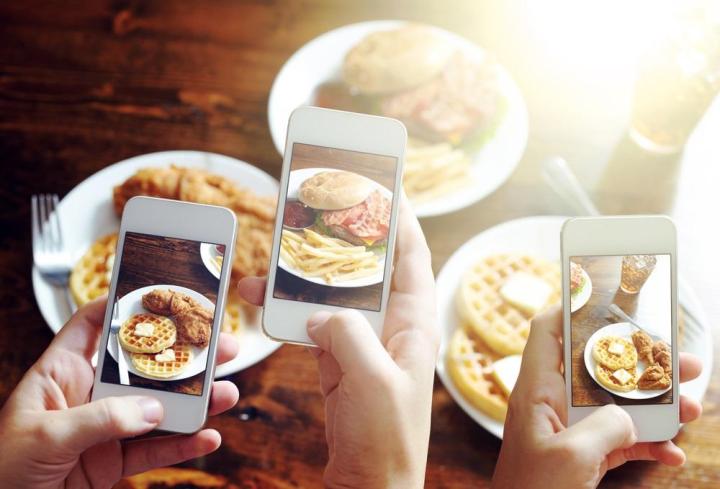
Certainly, a number of studies have noted that having several small meals across the day may be better for our metabolism and general health than three large meals, but it seems that some of us have taken that principle to a rather perverse extreme. Now, thanks to myCircadianclock, an app initially developed by Satchidananda Panda and Shubhroz Gill of the Salk Institute for research purposes, scientists have found that the majority of participants in their study consumed a great deal of their calories late at night, while maintaining a consistent caloric intake during the day as well.
Interestingly enough, many people didn’t seem to realize that this was the case. “Most participants thought they don’t eat or drink that regularly outside their breakfast-lunch-dinner routine,” Panda said, though their results clearly indicated otherwise. In conducting their experiment, Panda and Gill simply asked 150 men and women, all between the ages of 21 and 55, to take photos of everything they consumed. Over 50 percent of participants, the researchers said, ate for most of the 15 hours during which they were awake, fasting only when they were asleep.
The scientists then went a step further, examining what would happen when a group of participants were asked to eat for only 10 hours out of the day. After 16 weeks, Panda and Gill found that these eight individuals had cut their average caloric intake by 20 percent, and had lost an average of 7 pounds. Moreover, they reported higher levels of energy, better sleep, and all-around improved health.
The issue with late-night eating, which appears to be the problem for many chronic snackers, Panda explained, is that “the genes that are there to properly process those fats and sugars are not [activated] at their optimal level” once your metabolism has wound down for the day. By simply keeping more careful tabs on when you eat, you may be doing yourself some pretty serious health favors.
While tracking calories may seem like a dangerous rabbit hole to go down, researchers suggest that being more conscious of when you are eating is likely a good start. Nutritionist Lona Sandon of the University of Texas Southwestern Medical Center at Dallas says, “I see this a lot in those that I work with in my weight-loss classes. There is a lack of planning and stability in their eating schedules, so eating just happens whenever.”
At the end of the day, you may not need to take pictures of everything you eat, but just be aware of when you’re eating it.

